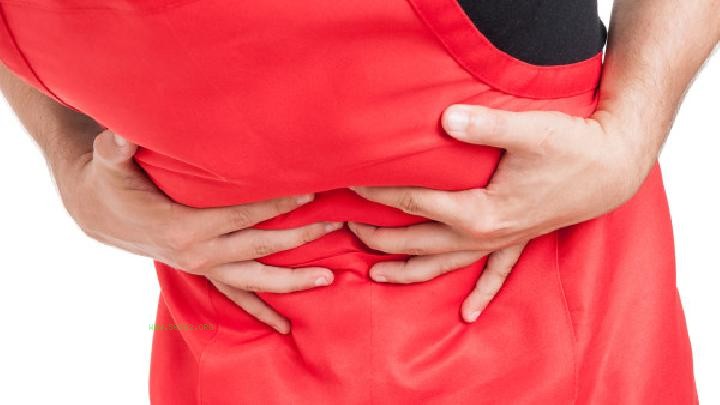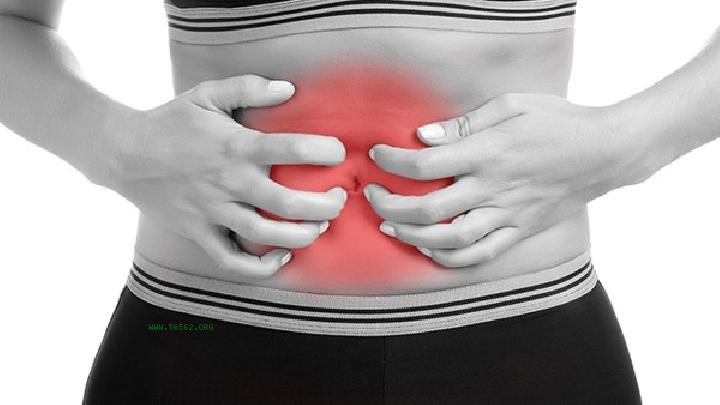Gastric disease is a difficult to recover digestive system disease that requires long-term and careful care to effectively recover. Many people say that millet nourishes the stomach, while others say that rice nourishes the stomach. So, is it millet or rice that nourishes the stomach? Why do they say they nourish the stomach? What should we pay attention to in our daily diet when we have stomach problems?
Millet porridge and rice Congee have high nutritional effects. So is it rice porridge or millet porridge that nourishes the stomach?
Rice is cooler than millet, so people with warm stomach are more suitable to drink rice porridge to nourish their stomach. But the rice is acidic. When cooking Congee, you should add some soda, which will not only soften the rice, facilitate digestion, but also relieve stomach pain. It is more suitable for people with postpartum physical weakness and those who suffer from multiple illnesses. People with weak spleen and stomach can also use it to restore vitality.
But the rice is acidic. When cooking Congee, you should add some soda, which will not only soften the rice, facilitate digestion, but also relieve stomach pain. It is more suitable for people with postpartum physical weakness and those who suffer from multiple illnesses. People with weak spleen and stomach can also use it to restore vitality.
Xiaomi is suitable for people with spleen and stomach deficiency heat, nausea and vomiting, diarrhea, as well as postpartum and post illness body deficiency. However, millet is a hot food. If your stomach is hot, don't drink too much. But most people drink millet porridge to nourish their stomach. Specially suitable for postpartum women and elderly people with physical weakness, it can have the effect of invigorating the spleen and stimulating the appetite.
In terms of calories, millet porridge is higher, so people who want to lose weight can drink some rice porridge appropriately. Different cooking methods of rice have varying effects on blood sugar levels. Dried rice cooked with an equal amount of rice has a smaller impact on blood sugar than porridge. Therefore, eating dry meals for diabetes patients is conducive to controlling blood sugar.
Millet porridge can be said to be the most ideal tonic for the elderly, infirm and puerperal women. Especially when millet is used to make porridge, a layer of fine viscous substance floating on it, commonly known as "rice oil", is extremely nutritious and has the strongest nourishing power.
When suffering from stomach problems, the following 11 principles should be paid attention to in diet:
Eat less fried foods: because these foods are not easy to digest and can increase the burden on the digestive tract. Eating too much can cause indigestion and increase blood lipids, which is not good for health.
Eat less pickled foods: These foods contain a lot of salt and some carcinogenic substances, so it is not advisable to eat too much.
Eat less raw, cold, and stimulating foods: Raw, cold, and highly stimulating foods have a strong stimulating effect on the digestive mucosa, which can easily cause diarrhea or gastrointestinal inflammation.
Regular diet: Studies have shown that eating regularly, in a timed and quantitative manner, can form a conditioned reflex, which helps with the secretion of digestive glands and is more conducive to digestion.
Timing and Quantification: It is necessary to have a moderate amount of food for each meal, with 3 meals scheduled every day. At the designated time, regardless of whether you are hungry or not, you should take the initiative to eat and avoid overeating.
Suitable temperature: The temperature of the diet should be "neither too hot nor too cold".
Chew slowly: to reduce gastrointestinal burden. The more times food is chewed thoroughly, the more saliva is secreted, which has a protective effect on the gastric mucosa.
Timing of Drinking Water: The best time to drink water is on an empty stomach in the morning and 1 hour before each meal. Drinking water immediately after a meal can dilute gastric juice, and soaking rice in soup can also affect food digestion.
Pay attention to cold prevention: Cold in the stomach can damage its function, so it is important to keep the stomach warm and avoid getting cold.
Avoid stimulation: Do not smoke, as smoking causes constriction of gastric blood vessels, affecting the blood supply to gastric wall cells, reducing the resistance of the gastric mucosa, and inducing stomach diseases. You should drink less alcohol and eat less spicy foods such as chili and pepper.
supplementing with Vitamin C: Vitamin C has a protective effect on the stomach. Maintaining normal levels of vitamin C in gastric juice can effectively enhance the function of the stomach, protect it, and strengthen its disease resistance. Therefore, it is important to eat more vegetables and fruits that are rich in vitamin C.
Dietary principles for ulcer disease: 1. Eat small meals frequently, 5-6 meals a day, pay attention to timing and quantity, and avoid overeating. Choose foods that are easy to digest, have high nutritional value, and protect the stomach. 2. Cooking methods: It is advisable to use steaming, boiling, boiling, stewing, and other cooking methods, and avoid using fried foods. 3. Avoid using foods that are high in crude fiber, hard and indigestible. Avoid using foods that are too sweet, too sour, too cold, too hot, and spicy.
Dietary principles for superficial gastritis: 1. Small meals, 5-6 meals per day. It can add sugar free milk, soda biscuits, polybasic Mantou, etc. 2. Cooking methods: It is advisable to use steaming, boiling, boiling, stewing, and other cooking methods. Do not use food that has been pan fried, fried, cooked, saut é ed, roasted, or mixed raw. It is recommended to eat cream and butter (which can inhibit stomach acid secretion). 3. Avoid consuming vegetables, coffee, strong tea, strong liquor, spicy, sour, mustard, and overly sweet foods that are high in crude fiber.
2. Cooking methods: It is advisable to use steaming, boiling, boiling, stewing, and other cooking methods. Do not use food that has been pan fried, fried, cooked, saut é ed, roasted, or mixed raw. It is recommended to eat cream and butter (which can inhibit stomach acid secretion). 3. Avoid consuming vegetables, coffee, strong tea, strong liquor, spicy, sour, mustard, and overly sweet foods that are high in crude fiber.
Dietary principles for atrophic gastritis: 1. Eat small meals, 6 meals a day, and choose easily digestible foods. Add vinegar seasoning in moderation to aid digestion. 2. Eat foods rich in high-quality protein and iron. Eat fresh green leafy vegetables such as tomatoes, rapeseed, spinach, carrots, etc. Eating meat juice and thick meat soup helps with the secretion of gastric juice. 3. Limit alkaline noodles, Mantou, butter, butter and other foods that can neutralize gastric acid secretion.
Dietary principles after gastrectomy: 1. Choose viscous and easily digestible foods with slow emptying. Gradually increase the quality and quantity of food in the diet based on absorption through small and multiple meals. 2. It is advisable to supply high protein, high-fat, high calorie, low carbohydrate, low residue, and easily digestible foods. Pay attention to supplementing various vitamins and iron, potassium, sodium, chlorine, etc. Reduce the use of monosaccharides and disaccharides to prevent the induction of dumping syndrome.
Choose viscous and easily digestible foods with slow emptying. Gradually increase the quality and quantity of food in the diet based on absorption through small and multiple meals. 2. It is advisable to supply high protein, high-fat, high calorie, low carbohydrate, low residue, and easily digestible foods. Pay attention to supplementing various vitamins and iron, potassium, sodium, chlorine, etc. Reduce the use of monosaccharides and disaccharides to prevent the induction of dumping syndrome.




Comments (0)
Leave a Comment
No comments yet
Be the first to share your thoughts!